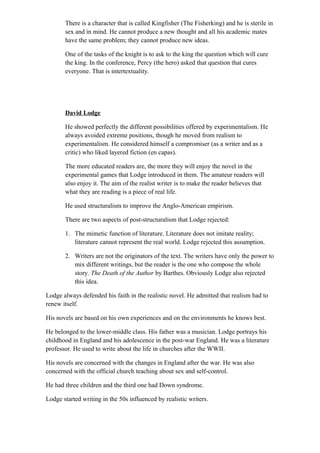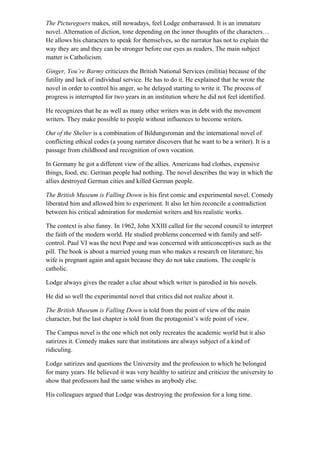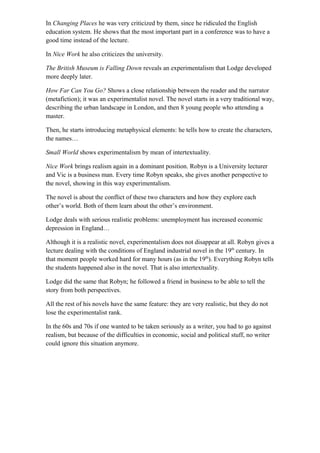1. Realism in novels aims to create an "illusion of life" by blending public and private experiences within a realistic social, economic, and historical context. Authors use techniques like consistency with history, fidelity to social norms, and causal plot development.
2. Victorian literature is divided into three periods - early novels focused on social problems, mid-Victorian novels embraced domestic realism, and late Victorian novels turned more psychological and pessimistic.
3. Thomas Hardy's novels were often initially rejected or censored due to scenes involving sex and marriage, but he later restored cut episodes when publishing in book form. Hardy faced increasing problems getting his realistic novels accepted due to Victorian sensibilities.
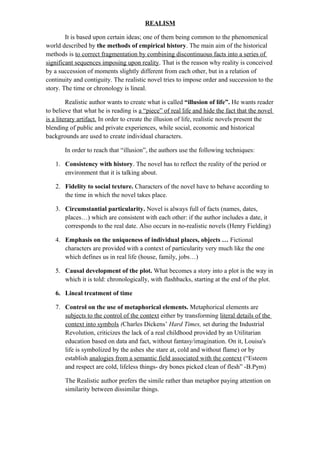
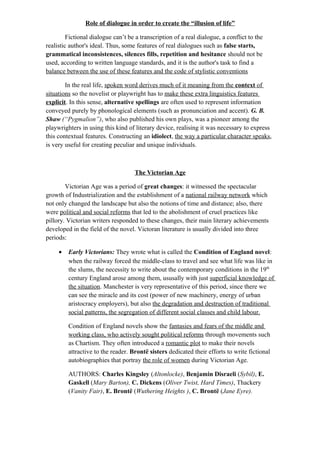
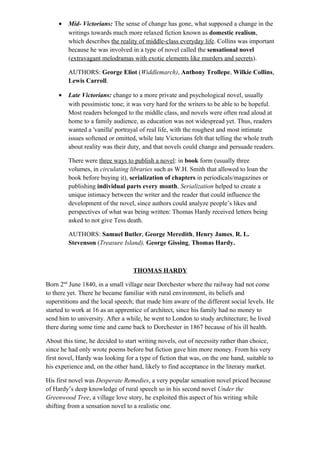
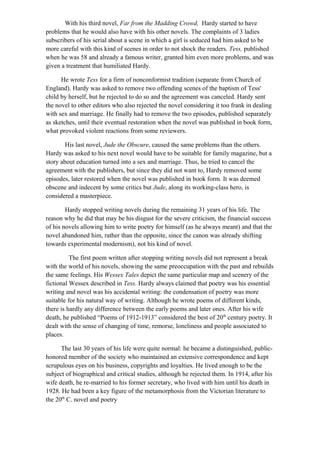
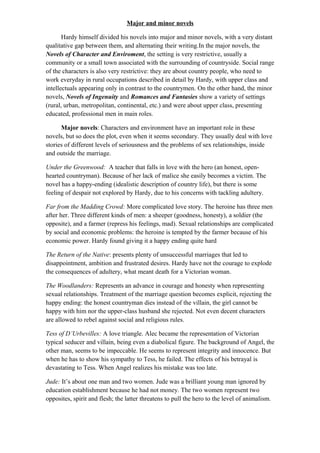
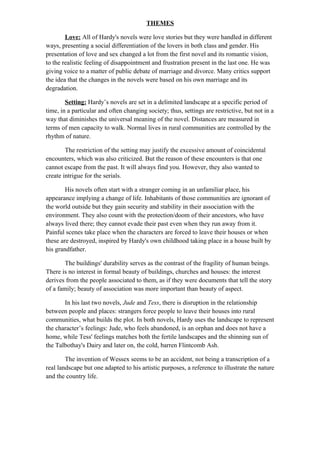
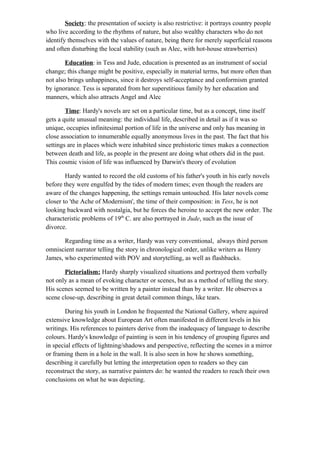
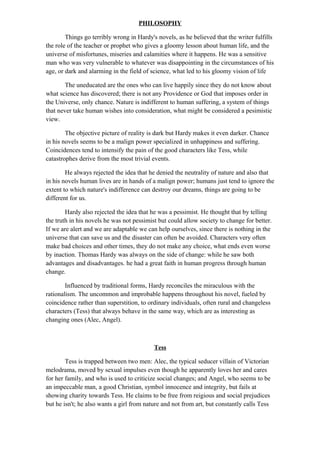
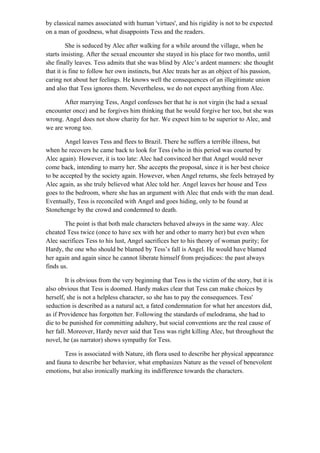
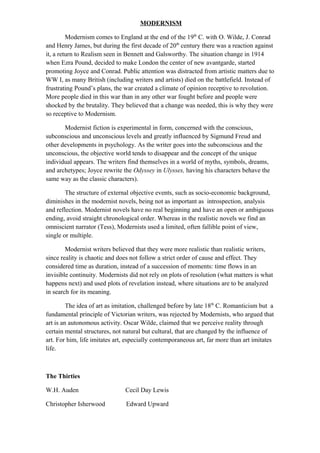
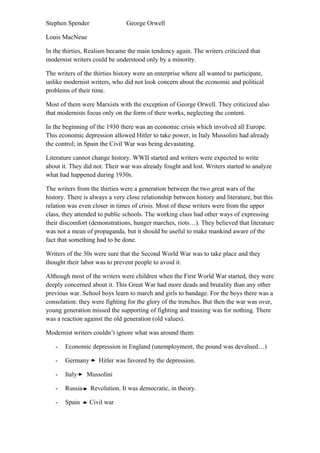
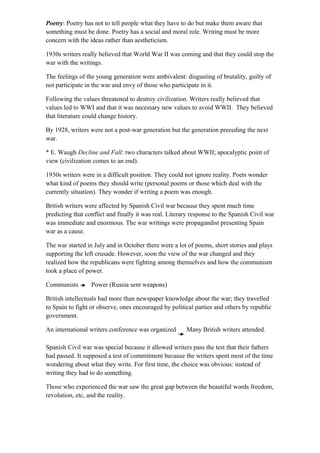
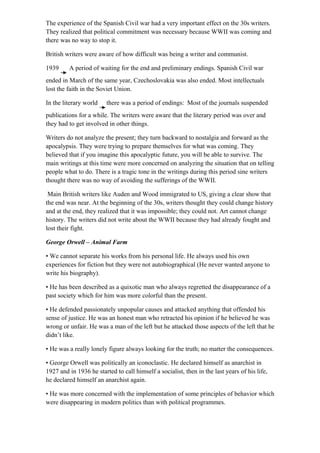
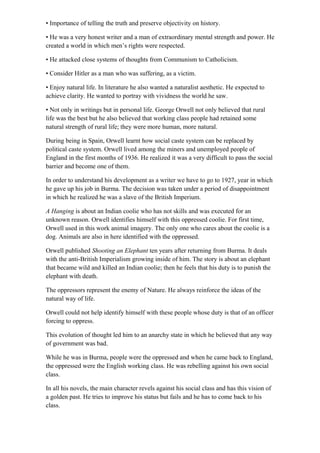
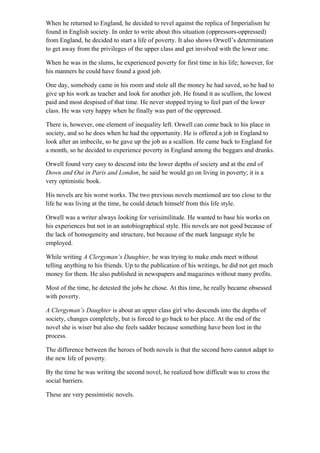
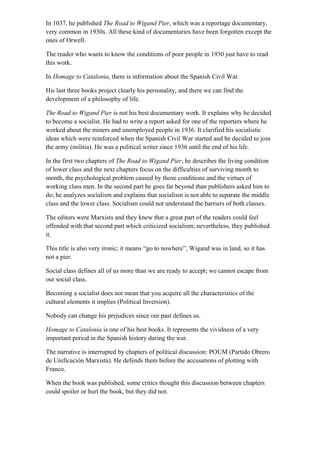
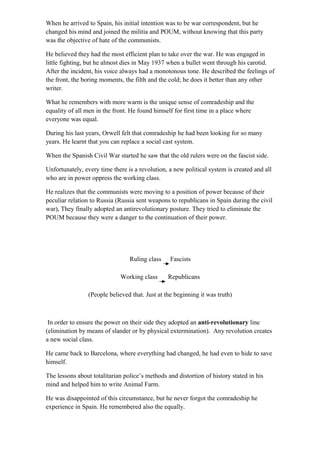
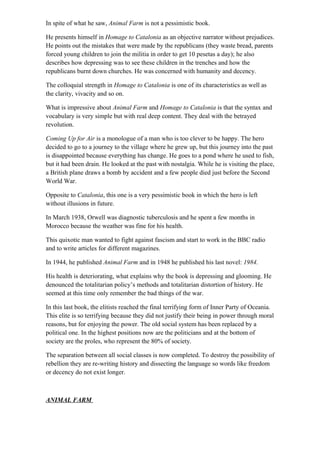
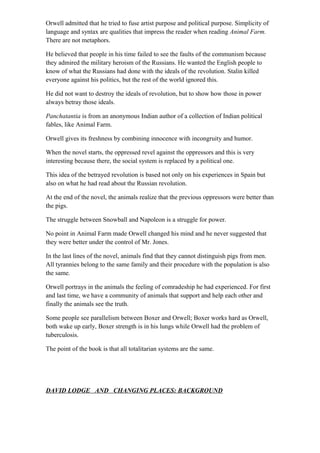
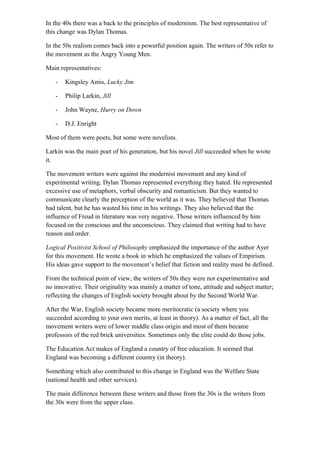
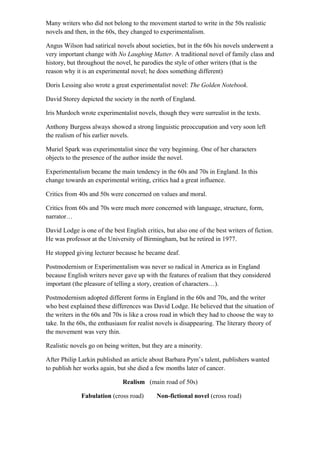
![According to what Robert Scholes and Robert Kellogg argued, there were two ways of
narrating:
1. Fictional [Romance] (cultivate beauty and tends to delay). This corresponds
with Fabulation.
[Allegory] (Cultivate goodness and aims to teach).
2. Empirical [loyal to the reader]. It is divided between history and mimesis and
corresponds to the non- fictional novel.
Fabulation is a more artistic and fictitious way of writing, concerned with form; less
realistic and concerned with ideas and ideals than with things. It tends to draw
inspiration from 3 types of sub-literature:
- Thriller technique (Kingsley Amis and Anthony Burgess)
- Pornography technique (John Fowls and D. M. Thomas)
- Science-fiction technique (Doris Lessing and J.G. Ballard)
Inside fabulation we must also include the gothic romance, written at the end of
the 18th
century (Angela Carter).
The non-fiction novel was more popular in America than in England (Truman
Capote).
These two ways of narrating were too radical, so writers decided hesitate into
their novels giving as result the problematic novel or metafiction (fiction about
fiction). The first example of metafiction is Tristam Shandy (Laurence Sterne)
from the 18th
century.
John Fowls also wrote The French Lieutenant’s Woman.
Many critics in 60s and 70s claimed that the conventions to portray reality were
not right, so the realistic novel would disappear. In 1990, Lodge published an
article about fiction in the 80s arguing that the realistic novel had not
disappeared and it was really alive. The name of the article was Magic Realism.
The best representative of what this article claimed is Salman Rushdie.
Revival of the literary travel writings can be included in non-fictional novels. It
deals with a slightly teasing, autobiographical facts, cultural and philosophical
comments.
The term “cross road” became “crossover” since very few writers are
exclusively attained to non-fiction or fabulation.
Intertextuality is a technique which consists on rewriting a story. Small World is
about the world of conferences; the characters meet again and again. One of the
characters is an English man, virgin, and 20 years old; a romantic man looking
for his ideal woman (a knight in medieval times). He falls in love with a feminist
strong woman who does not need to be protected by a knight.](https://image.slidesharecdn.com/narrativaamended-150524213111-lva1-app6892/85/British-Literature-22-320.jpg)
